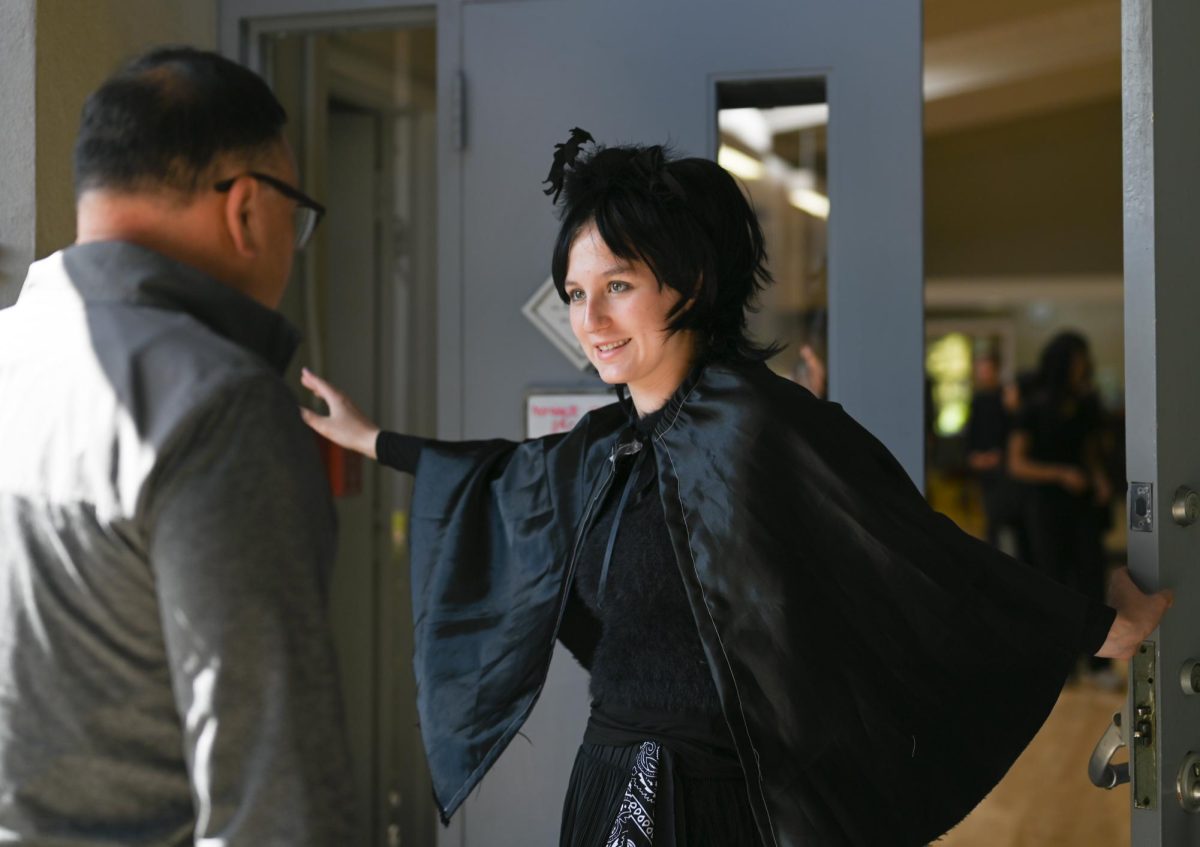Students attend art, science and music event sponsored by University of California Santa Cruz
October 17, 2011
On October 15, 16 students attended the Evolutionary Revolutionary event at the Cupertino Flint Center to hear an orchestra performance and scientific conversation sponsored by the University of California Santa Cruz.
Because of the Upper School’s connection to the university that was developed through students’ summer internships, the University of Santa Cruz offered tickets to provide students with the opportunity to attend the event.
“The entire evening blended art, music, and science, and Joe Rosenthal and I tried to offer tickets to students who’s passions straddled all three areas,” Science Department Chair Anita Chetty said.
Sandra Faber, an astronomer and cosmologist; Richard E. Green, an award-winning pioneer of Neanderthal genome and ancient DNA; and David Haussler, a professor and leading authority of bio-molecular engineering discussed advances in the scientific community and implications of new discoveries and technology. Joe Palca, Science Correspondent for National Public Radio, directed the conversation by asking questions for the three scientists to answer.
“I like how the three researchers each gave their own insight and feelings toward the topics of the discussion as opposed to just stating facts,” Shreya Vemuri (11) said. “For me, the talk stressed the importance of research and the understanding of life in order to move forward in the future.”
Following the discussion was a video that honored Mark Bishop, a cancer scientist who received the 1989 Nobel Prize for Physiology or Medicine with his partner Harold Varmus. The third act was a performance by a Silicon Valley Orchestra called A Journey Through Time, accompanied by Frans Lanting’s photographs and images.
“The symphony was beautifully composed. The journey had such a clear evolution from the beginnings to the sea to moving to land to the burgeoning complexity of life,” Ananth Subramaniam (12) said.
Ananth discovered that “science and art are not mutually exclusive because there is an underlying creative human instinct in both” after experiencing the “unique balance” of art, music, and science.


















![“[Building nerf blasters] became this outlet of creativity for me that hasn't been matched by anything else. The process [of] making a build complete to your desire is such a painstakingly difficult process, but I've had to learn from [the skills needed from] soldering to proper painting. There's so many different options for everything, if you think about it, it exists. The best part is [that] if it doesn't exist, you can build it yourself," Ishaan Parate said.](https://harkeraquila.com/wp-content/uploads/2022/08/DSC_8149-900x604.jpg)




![“When I came into high school, I was ready to be a follower. But DECA was a game changer for me. It helped me overcome my fear of public speaking, and it's played such a major role in who I've become today. To be able to successfully lead a chapter of 150 students, an officer team and be one of the upperclassmen I once really admired is something I'm [really] proud of,” Anvitha Tummala ('21) said.](https://harkeraquila.com/wp-content/uploads/2021/07/Screen-Shot-2021-07-25-at-9.50.05-AM-900x594.png)







![“I think getting up in the morning and having a sense of purpose [is exciting]. I think without a certain amount of drive, life is kind of obsolete and mundane, and I think having that every single day is what makes each day unique and kind of makes life exciting,” Neymika Jain (12) said.](https://harkeraquila.com/wp-content/uploads/2017/06/Screen-Shot-2017-06-03-at-4.54.16-PM.png)








![“My slogan is ‘slow feet, don’t eat, and I’m hungry.’ You need to run fast to get where you are–you aren't going to get those championships if you aren't fast,” Angel Cervantes (12) said. “I want to do well in school on my tests and in track and win championships for my team. I live by that, [and] I can do that anywhere: in the classroom or on the field.”](https://harkeraquila.com/wp-content/uploads/2018/06/DSC5146-900x601.jpg)
![“[Volleyball has] taught me how to fall correctly, and another thing it taught is that you don’t have to be the best at something to be good at it. If you just hit the ball in a smart way, then it still scores points and you’re good at it. You could be a background player and still make a much bigger impact on the team than you would think,” Anya Gert (’20) said.](https://harkeraquila.com/wp-content/uploads/2020/06/AnnaGert_JinTuan_HoHPhotoEdited-600x900.jpeg)

![“I'm not nearly there yet, but [my confidence has] definitely been getting better since I was pretty shy and timid coming into Harker my freshman year. I know that there's a lot of people that are really confident in what they do, and I really admire them. Everyone's so driven and that has really pushed me to kind of try to find my own place in high school and be more confident,” Alyssa Huang (’20) said.](https://harkeraquila.com/wp-content/uploads/2020/06/AlyssaHuang_EmilyChen_HoHPhoto-900x749.jpeg)









